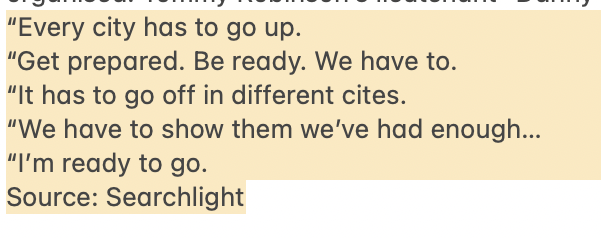Education or Regulation? Disrupting Social Media’s Current of Racist Disinformation
It feels wrong to be discussing racism and islamophobia in conversations about the murders of the three young girls in Southport last Monday. The focus should be on the victims, their families, the community, and the facts of the incident. Yet, the rapid spread of misinformation and overt racism online means that conversations about six-year-old Bebe King, seven-year-old Elsie Dot Stancombe and nine-year-old Alice Dasilva Aguiar now sit alongside these issues.
So, who’s to blame and where do we go from here? With policing the internet seeming to be an impossible task, how can we fight back against the barrage of false news and the veil of anonymity afforded to those who spread racist inflammatory fake information? Calling for accountability to those who own social media platforms seems an obvious first port of call. The churning of fake news and racist ranting generates traffic and activity, which is part of the social media profit-gaining. So there is moral onus on those who own these platforms to play a role in ensuring that social media is ethical, safe, and not harmful to society. The EU Code of Practice on Disinformation provides some regulation, but only a handful of social media companies have committed to them. Disinformation is so commonplace that there are now numerous online fact-checking institutes in a bid to myth bust – for example Reuters Fact Check or Politifact. What’s concerning now is how fake news is both produced through bias and generating bias. When a false identity was shared in relation to the Southport knife murders, it was circulated on social media in a current of racial abuse and tensions. The anger and disorder it produced resulted in Mosques being targeted and damaged, despite the Muslim community having nothing to do with the murders. Disinformation on social media is becoming an increasing threat to democracy and justice, as exemplified by the riots. While the owners of social media platforms do hold responsibility, the rapid advancement of technology (particularly the snowballing presence of AI) means that issues like racism and islamophobia are taking on evolving forms that require thoughtful and proactive action.
Propaganda has always existed and has always served to oppress marginalised communities and identities. Fake news about different races has historically shaped deeply embedded perceptions that ethnic minorities are less intelligent and less civilized or are invading perceived white spaces. What’s concerning is that a hundred years on from printed pamphlets promoting eugenics and segregation, racist propaganda is now instantly spreadable and intensely noisy. So, when fake news about the murder suspect of these three little girls was created, it was reproduced, discussed, and filtered through racial bias; resulting in inciting a riot. The images of rioters in Southport (contrasted joyfully with the images of those in the community cleaning and rebuilding) signify that the conversation about racism is now a conversation for all – not just those who are on the receiving end.
Disrupting online racism is quite a large mountain to try and climb. Here is where some hope lies in anti-racist education being embedded in schools and other learning settings. It’s not an anti-white campaign that it’s often labelled as, but overtly rooted in kindness, empathy, fairness, listening and learning. It’s not about policing what language people use – which is the general perceived fear, but about helping young people (and adults working with them) understand the power of the language they use and see. This is why the term racial literacy is often used now. Racism is often uncomfortable to discuss, which gives racist aggression online more space to flourish. By engaging in the difficult conversations and challenging historically established bias – by being proactive – there is an opportunity to create a long-term cultural shift. An opportunity to disrupt the rise of far-right racism.

Often when working in anti-racist education, there are those who worry that anti-racist conversations can be too heavy, political, or grown up for young learners. However, with the prominent and growing presence of social media in their lives, it’s now essential to address. Anti-racist education helps young people identify bias and opinions or fake news dressed up as news. The Reuters 2024 Digital News Report found that more than a quarter of TikTok users (27%) struggle to detect trustworthy news and that 24% of X users say that it is “hard to pick out trustworthy news”. It also signposted that Newsguard reported in 2022 that a fifth of sample searches on major news topics contained misinformation. Young people are navigating an increasingly loud online space. By equipping them with the critical thinking skills that prompt them to question sources, bias, and trustworthiness, we are sowing the seeds for more ethical information spreading. For young people who have seen an act of violence followed by more violence, they can be empowered to engineer change.
There are many different regulators and forces that have a part to play in curbing online hatred. There is also the need for long-term systemic change, coming from the honest conversations about racism. Shying away from the subject is now a risk for all. Acknowledging the role racism had in the Southport riots (and subsequent riots around the country) and identifying its roots is imperative for changing the trajectory.

Misinformation on the internet ? We could start with the MSM which is continually reporting ”UK riots ”, ”British riots ” – when only England ( and one incident in N.I) have occurred – nothing , thankfully , in Scotland or Wales . It’s almost as if they want to tar us with the same brush .